With the summer movie season now quietly winding down, fall is upon us. As we do each year, after highlighting the best films offered thus far, we’ve set out to provide an overview of the titles that should be on your radar.
Featuring 40 films, the below preview includes both the best we’ve already seen (with full reviews where available) and the anticipated with (mostly) confirmed release dates over the next four months. A good amount will premiere these next few weeks at Telluride, Venice, TIFF, and NYFF, so check back for our reviews. Dates below are theatrical releases unless otherwise noted.
For more, explore our 20 most-anticipated films premiering at fall festivals that currently don’t have a fall release date confirmed.
Rebel Ridge (Jeremy Saulnier; Sept. 6 on Netflix)
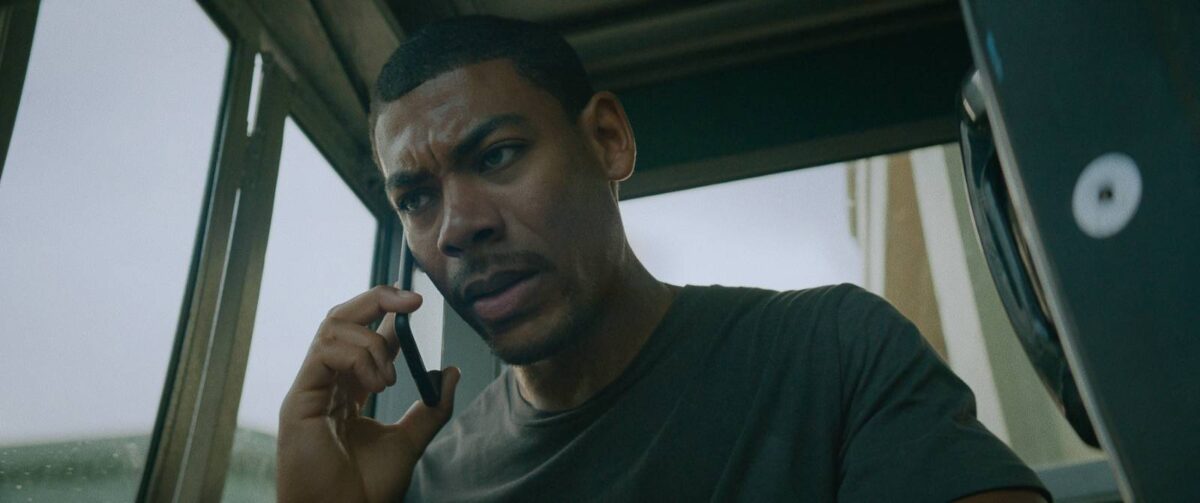
A ruthlessly efficient thriller fueled by boiling rage, Jeremy Saulnier’s Rebel Ridge wastes no time setting the stakes. Terry Richmond (Aaron Pierre) is listening to metal on his headphones, biking into the fictional town of Shelby Springs, Louisiana, when a police cruiser crashes into him, forcing him to tumble to the ground. Carrying $36,000, he sold his car and a stake in a restaurant he had and was on his way to bail his cousin out of jail, who was incarcerated for possession of marijuana. From the police’s point of view, he had been evading arrest as they were tailing him for two miles. Despite only giving him a traffic violation they enact civil asset forfeiture, seizing all of his cash under the suspicion it may be drug money. This sets the mysterious, resourceful Terry on a mission of combating this police corruption and overreach by any means necessary to make things right. After the more moody, overwrought Hold the Dark, Saulnier is firmly back in more streamlined Blue Ruin and Green Room territory, crafting a laser-precise story in which the audience is refreshingly one step behind our protagonist at every turn. – Jordan R.
His Three Daughters (Azazel Jacobs; Sept. 6 in theaters and Sept. 20 on Netflix)

Absence is at the center of His Three Daughters, Azazel Jacobs’ latest film. It’s set almost entirely in a small New York City apartment as three sisters reunite to care for their ailing father in his final days, and Jacobs never lets us see inside his room. The camera stays largely in common areas where the three leads argue, cry, reconcile, and come to terms with living in a world where the one thing tying them together no longer exists. Barring some divisive final-act choices, it’s a powerful work with a smart screenplay and three terrific performances that capture the messy nature of families going through a grieving process. – C.J. P. (full review)
Red Rooms (Pascal Plante; Sept. 6)

Arriving more than a year after its Karlovy Vary premiere, Canadian thriller Red Rooms feels most like a dark companion piece to Saint Omer in its perspective-shifting analysis of a courtroom observer, although that’s where the similarities end. Director Pascal Plante’s tale of true-crime obsession pushed to one of its most uncomfortable logical extremes doesn’t attempt to rip up the rulebook of how courtroom dramas operate so much as it tries grappling with the sensationalized allure of murder cases, and the disastrous consequences of third-party observers feeding off the personal trauma of others. That it manages to be so critical whilst succeeding as a nihilistic thriller at face value––albeit one closer in tone to Olivier Assayas’ Demonlover than David Fincher, to whom it has been regularly compared––is its greatest achievement, a stealth satire of which Paul Verhoeven would be proud. – Alistair R.
Look Into My Eyes (Lana Wilson; Sept. 6)

Ask enough people what they think about psychics and clairvoyants, and you’ll probably get eye-rolls. Whether referencing the storefront tarot readers or the more seriously minded seers who perform seances and communicate with those who have transitioned into the afterlife, the impression of this spiritual trade is generally disbelief. What’s unique about director Lana Wilson’s latest documentary, which primarily highlights seven psychics living in various parts of New York City, is that it never aims to persuade you against that reaction. In this deeply moving, compassionate exploration, determining whether this small and goofy group actually has real powers is beside the point. – Jake K. (full review)
My First Film (Zia Anger; Sept. 6)

Zia Anger’s name has been a kind of totem for underground film artistry, to whatever extent that seems to exist anymore. Her presentation-based My First Film made waves in recent years as the ultimate vision / confession of artistic failure and regret, making somewhat peculiar the existence of, let’s see what it’s called, My First Film, a feature debut-of-sorts that tells of her younger self’s failure to launch a filmmaking career. Or someone like her: the lead character is Vita, a shortsighted and temperamental young director failing to control cast, crew, ideas, or impulses; but present in the film is Zia, who reflects on this difficult time in the character’s (her?) life. Fear not any risk of complication: My First Film makes legible––dare I say universal?––thwarted dreams and personal embarrassment vis-a-vis the interplay of Anger’s actual work and Vita’s imagined endeavors. – Nick N.
Matt and Mara (Kazik Radwanski; Sept. 13)

The films of Canadian director Kazik Radwanski are freedom in its purest form, or the purest this particular medium can contain. Being the opposite of prescriptive, they sculpt themselves according to interpersonal dynamics that can otherwise be invisible, and by doing so, give shape to parallel emotional worlds, extensions of a protagonist’s psyche. That goes for Derek (Derek Bogart), the impulsive lead in Tower (2012), sleep-deprived gamer dad Erwin (Erwin van Cotthem) from How Heavy This Hammer (2015), and for the chaotic Anne (Deragh Campbell) whose quarter-life crisis makes a delightful whirlpool out of Anne at 13,000 ft (2019). The second collaboration between Radwanski, Campbell, and Matt Johnson following Anne premieres at the Encounters section of this year’s Berlinale and it is humbly named Matt and Mara. – Savina P. (full review)
Girls Will Be Girls (Shuchi Talati; Sept. 13)

In a voicemail to a crush two years her senior, Mira (Preeti Panigrahi) wonders if her feelings are “puppy love [or] maybe it’s big dog love.” Directed by Shuchi Talati, Girls Will Be Girls has an unfortunate title that makes it sound like a sugary teen comedy. It’s a far more nuanced, interesting portrait of a 16-year-old girl coming to terms with a sexual awakening and her young mother, who never quite had the chance to experience one either. – John F. (full review)
A Different Man (Aaron Schimberg; Sept. 20)
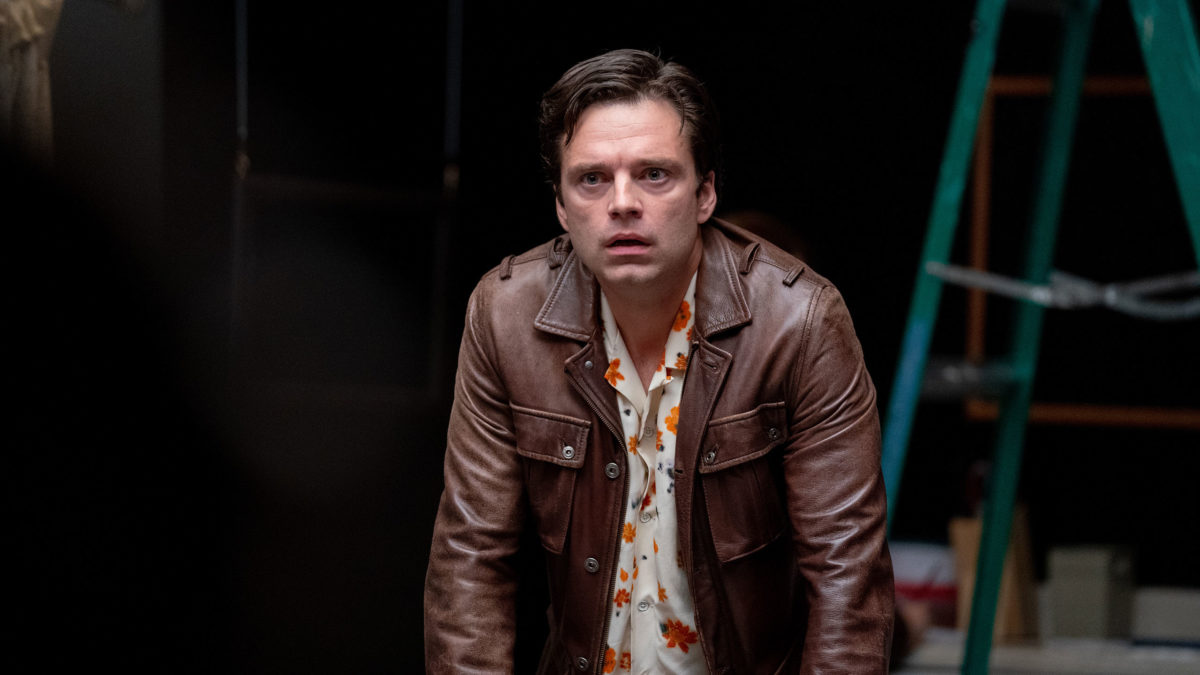
There are a lot of ways A Different Man could go and a lot of things it could be. Aaron Schimberg’s uniquely uncomfortable, uncomfortably unique feature sometimes plays as a reverse-Frankenstein medical horror, a tragic life-imitates-art satire, and a spiraling relationship drama. To its ambitious and distinct credit, it attempts packaging them all into ominous-sounding harmony, as if Charlie Kauffman’s surrealist Escher concoctions became a Twilight Zone episode modeled after David Lynch’s Elephant Man or Beauty and the Beast. It’s a dark, hilarious, and deeply unsettling portrait of a disfigured man that’s also an unflinching mirror of a looks-focused industry. – Jake K. (full review)
The Substance (Coralie Fargeat; Sept. 20)

Coralie Fargeat made a splash with her debut Revenge. But she was only standing in a puddle, endearing niche corners of the global cinephile community to her cinematic bloodlust for sexually violent men and gore-horror filmmaking. With her second, The Substance, she’s fully submerged in the ocean and making waves. Meet Elisabeth Sparkle, a Demi Moore-esque A-lister (played by Demi Moore) whose stardom has long since faded, leaving her, to great displeasure, in the instructor’s seat of a glam morning-fitness class called “Sparkle Your Life.” We learn about her iconic career through a cleverly designed timelapse that opens the film––a bird’s-eye view of her Hollywood Walk of Fame star being minted, premiered, adorned, celebrated, surrounded, stood on, passed, ignored, and eventually forgotten. – Luke H. (full review)
Eureka (Lisandro Alonso; Sept. 20)
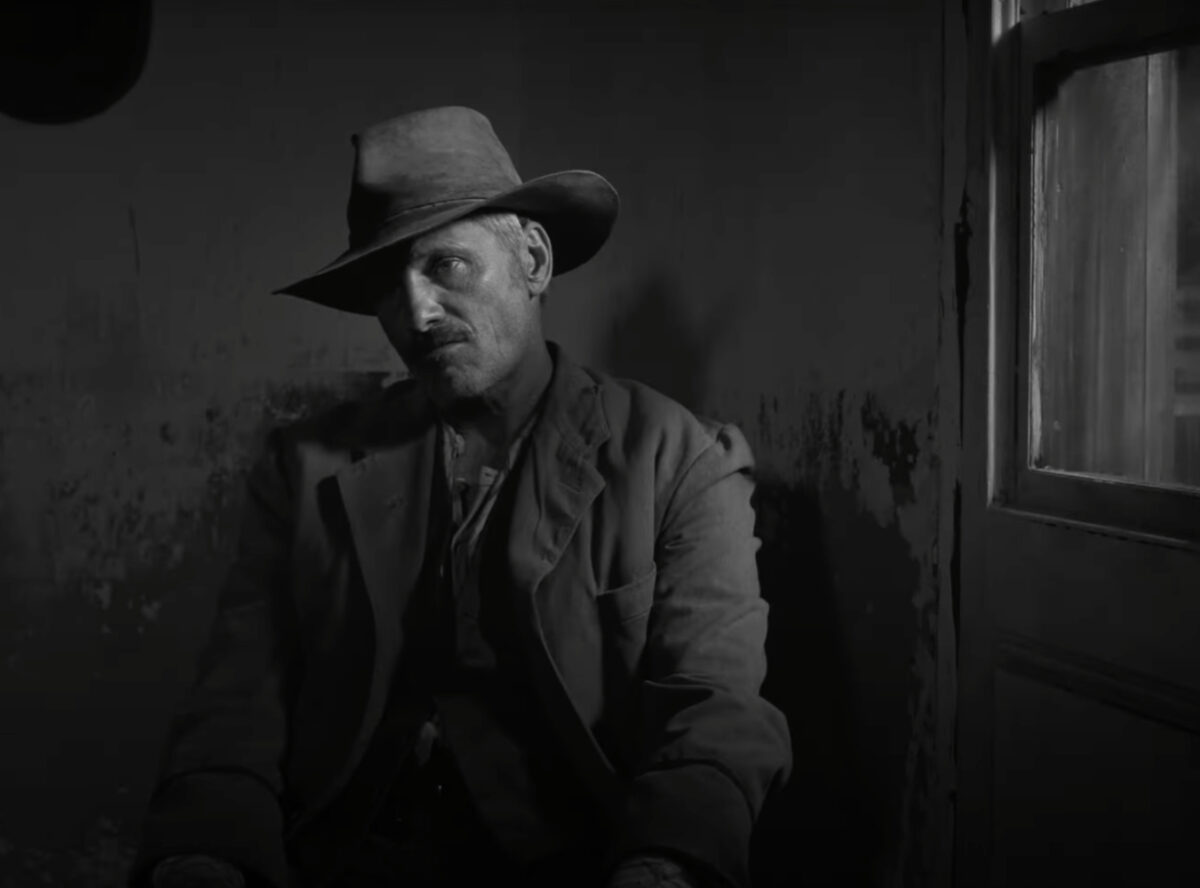
Nine years since that underground epiphany, along comes Eureka, a film that, for large chunks, seems to emerge from the same hallucinatory terrain Jauja opened up. Like all its predecessors, this unfurls as a literal journey dotted with solitary wanderers either searching for or mourning lost relatives. (“All families disappear eventually,” Gunnar was told down the cave, a line that might as well double as the director’s motto.) Old tropes and motifs notwithstanding, Alonso’s latest is his most ambitious: a tripartite film, Eureka sides not with the white strangers in strange lands that had long peopled Alonso’s oeuvre, but with the native communities facing these invaders. Its scope is ecumenical, its geography massive. In barest terms, Eureka’s designed to sponge something of, and locate parallels between, the experience of Indigenous communities stranded in three markedly different milieus: the Old West; South Dakota’s Pine Ridge Reservation in the present day; and finally the jungles of early-70s Brazil. – Leonardo G. (full review)
Megalopolis (Francis Ford Coppola; Sept. 27)

If you dove head first into Francis Ford Coppola’s Megalopolis, you would get a concussion. The filmmaker’s supposed opus––a glitzy, gargantuan, long-gestating project that he conceived of in the late ‘70s, attempted to make more than once in the ‘80s, rewrote countless times over the last four decades, and eventually self-financed for $120 million due to lack of external support––has had cinephiles like myself drooling over its scope and potential for years. Alas, there is no deep end in this pool. Don’t let that deter you though. Receive it with a healthy dose of doubt and let it reshape (and perhaps healthily lower) your expectations. Because, at the end of the day, for better and for worse, in awe and in tired confusion, Megalopolis is a garish wonder to behold. – Luke H. (full review)
The Outrun (Nora Fingscheidt; Oct. 4)

Maybe the smartest decision made in The Outrun, directed by Nora Fingscheidt, is its fractured narrative device. Based on the 2016 memoir of the same name by Amy Liptrot (co-writing with Fingscheidt), the film offers a frank, unwavering look at addiction with the great Saoirse Ronan (who also produces) in the lead role. We move forward and backward in time, often relieved to be clear from horrible sins of the past only to be thrust back into them minutes later. In this way, the picture reflects its subject with painful precision. – Dan M. (full review)
It’s What’s Inside (Greg Jardin; Oct. 4 on Netflix)
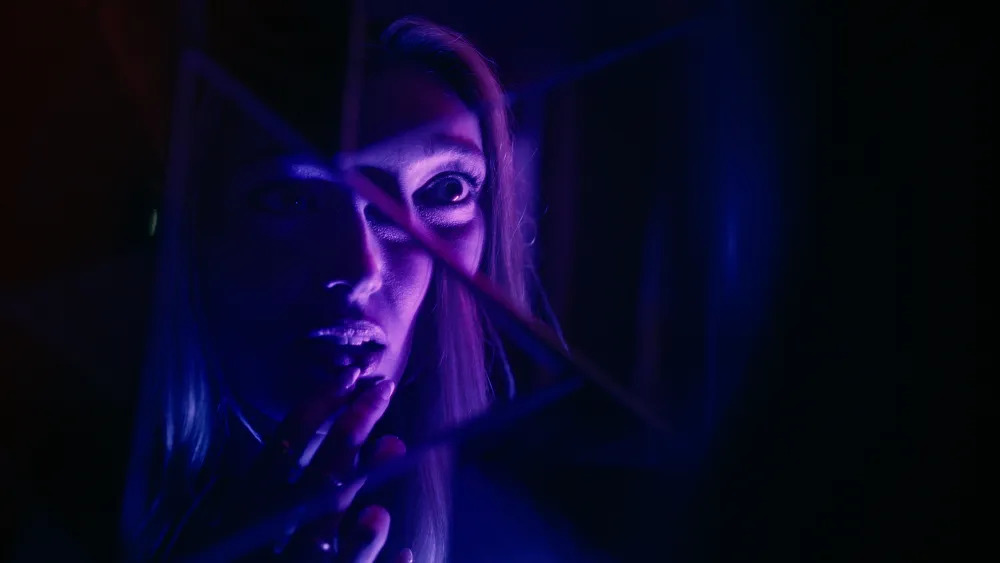
There are few things better than when a good idea blossoms into a great movie. It’s What’s Inside, written and directed by Greg Jardin, achieves this rare feat. DIY in both aesthetic and narrative build, it suggests a labor of love. The premise is simple: a group of old college friends party at a big house the night before one of them gets married. Things seem sinister before anything bad has even happened. Or maybe the bad things already happened a long time ago. – Dan M. (full review)
Union (Brett Story, Stephen Maing; Oct. 18)
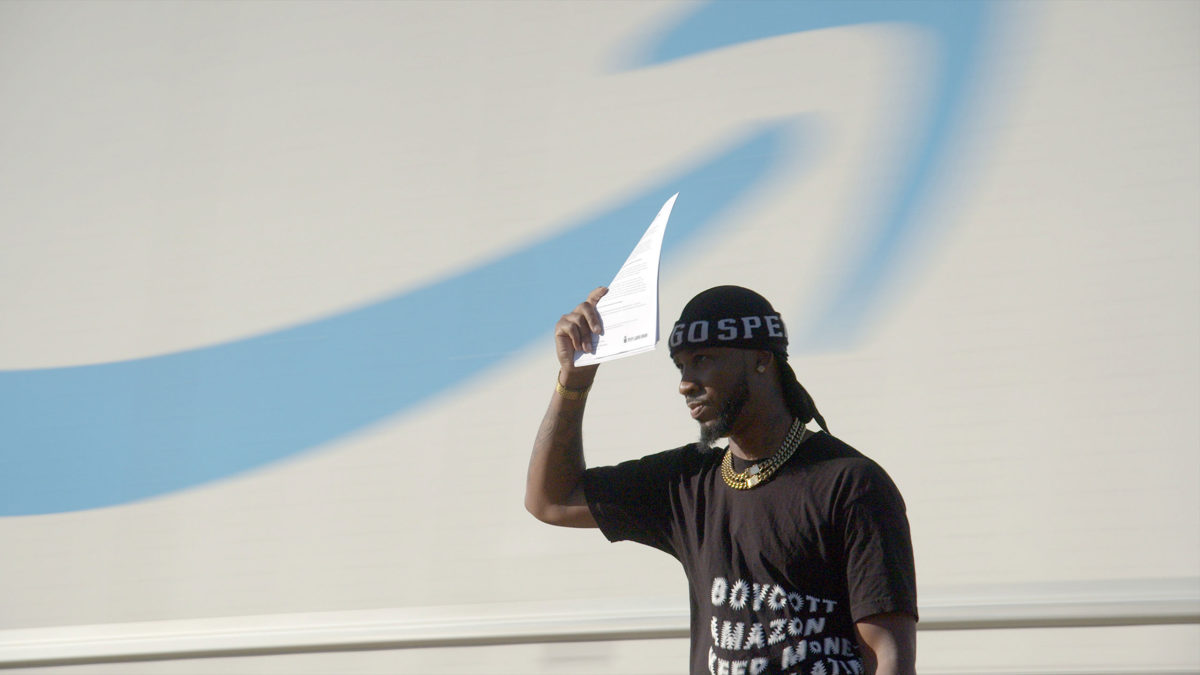
Amazon Labor Union (ALU) president Chris Smalls is not the star of the documentary Union. He is just one part of the congregation in Brett Story and Stephen Maing’s co-directed film. An early glimpse of Smalls finds him discreetly flipping burgers and hot dogs at a grill. It took an employee to ask Smalls if he’s the “low-key famous” Smalls for the leader to list his media recognitions. He doesn’t want clout for his union organizing, but rather to be known for making laborers heard, enabling a better society for his children and comrades, and proving to white executives that he can manage a flock in his distinguished streetwear outfits. – Edward F. (full review)
Rumours (Guy Maddin, Evan Johnson, and Galen Johnson; Oct. 18)
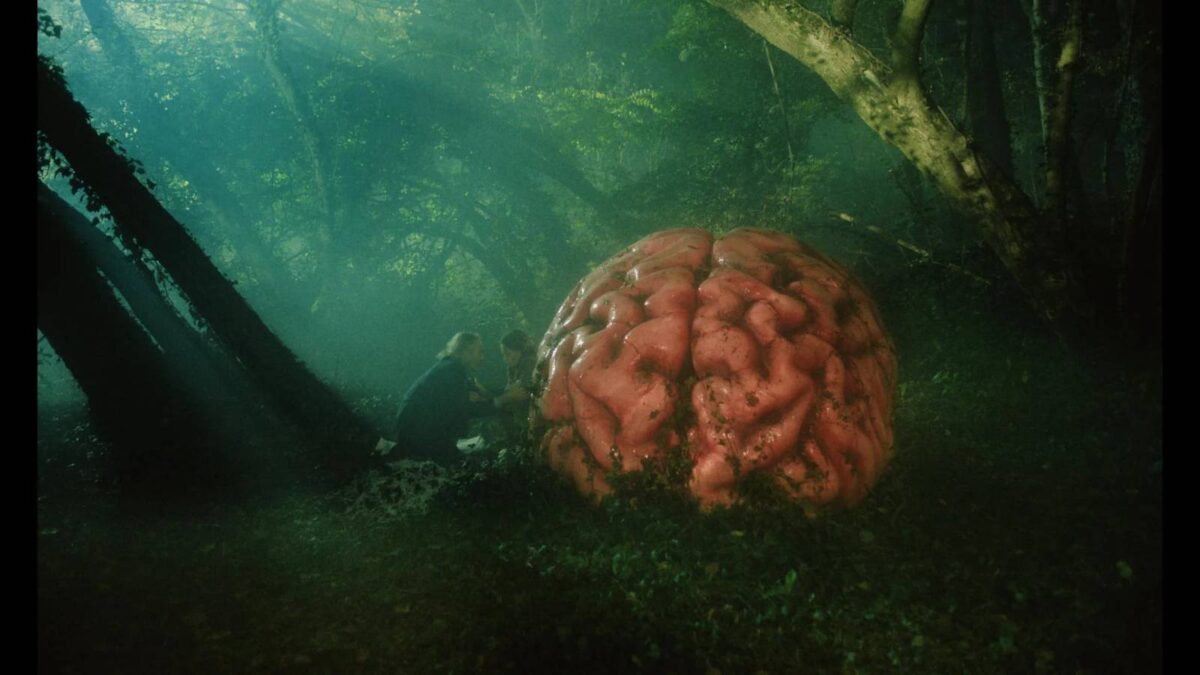
If you do know the longtime Canadian experimentalist’s filmography, then you know nothing seems less likely than Rumours, his grand, Cannes competition-grade entrance into (supposedly) normcore feature filmmaking which, when discussing Maddin, encompasses everything inside and most things outside Schrader’s Tarkovsky Ring. Even less likely is the idea that Maddin would take on modern, real-world events, the film opening on the press podium of the G7 summit, albeit one led by slightly fictionalized, more blatantly vapid versions of the leaders they represent. – Luke H. (full review)
Anora (Sean Baker; Oct. 18)

Up to this point, Mikey Madison––the fearless, explosive 27-year-old lead of Sean Baker’s Anora––is best-known for her chilling turn as the deranged killer in the 2022 Scream reboot. Before that she was the shrieking Manson girl in the finale of Once Upon a Time… in Hollywood. (Remember the one Rick Dalton torches in the pool?) Beyond this point, however, the world will know her for Anora. And they will know her. The stardom won’t be a gift handed down by Baker, the writer, director, casting agent, and editor of the outrageous Brooklyn-based sex-worker-meets-Russian-oligarch-family comedy (not to be read as “family comedy”; it is anything but) that turns the heavy drama up to eleven about halfway through. All a director can do is set their actor up for success and inspire confidence––provide the proper tools, framing, character prep, and rehearsal. Of course, as author of the project, Baker is a conduit for stardom. But no director can corral a performance as unforgettable as Madison’s unless the actor already possesses a sixth sense for the screen, an inimitable talent, and a plucky courage to lay oneself bare in front of millions in more ways than one. – Luke H. (full review)
Dahomey (Mati Diop; Oct. 25)
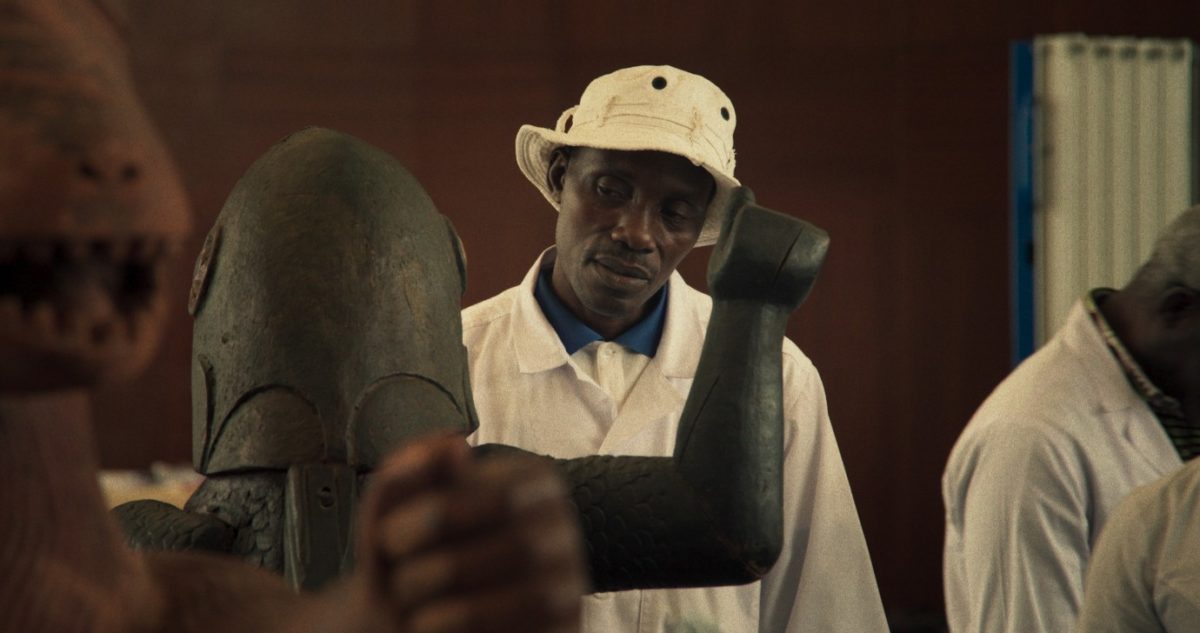
In 1953, Alain Resnais, Chris Marker, and Ghislain Cloquet produced Statues Also Die, one of the fiercest and most lucid indictments of white imperialism ever captured on film. Commissioned by the magazine Présence Africaine, it sought to dissect Western attitudes toward African art. The 30-minute short did not begin as an anti-colonial project but became one along the way, informed by the belittling treatment that antiquities from the continent had received across French cultural institutions since their plundering under colonial rule. Why, for a start, was African art routinely confined at the Musée de l’Homme in Paris––an ethnographic museum––while Greek or Assyrian pieces found their place at the Louvre? An arresting montage of statues and their visitors swelled into a much larger critique of the systematic oppression of Black culture and Black bodies, with a third act considering the exploitation of Black athletes and musicians in the States. That you might have never heard of it is hardly surprising. The short was swiftly banned upon release, then shipped back out in a truncated version, and finally approved by the censor in its unabridged cut in 1995––a staggering 42 years since it first screened. (It’s now available on YouTube.) “An object dies when the living glance trained upon it disappears,” Jean Négroni’s voiceover prophesied at the start, “and when we disappear, our objects will be confined to a place where we send black things: to the museum.” – Leonardo G. (full review)
Nickel Boys (RaMell Ross; Oct. 25)

After crafting one of the most remarkable documentaries of the last few years with the Apichatpong Weerasethakul-backed, Sundance-winning, Oscar-nominated Hale County This Morning, This Evening, director RaMell Ross has moved into narrative fiction with an adaptation of Colson Whitehead’s acclaimed, Pulitzer-winning 2019 novel The Nickel Boys. Going inside the true story of abuses at the juvenile reformatory Dozier School for Boys in Florida, it features Aunjanue Ellis-Taylor, Ethan Herisse, Fred Hechinger, Hamish Linklater, Brandon Wilson, and Daveed Diggs. With cinematography from Jomo Fray, who shot last year’s stunning All Dirt Roads Taste of Salt, we expect this to be a major leap forward for Ross and co. – Jordan R.
Memoir of a Snail (Adam Elliot; Oct. 25)
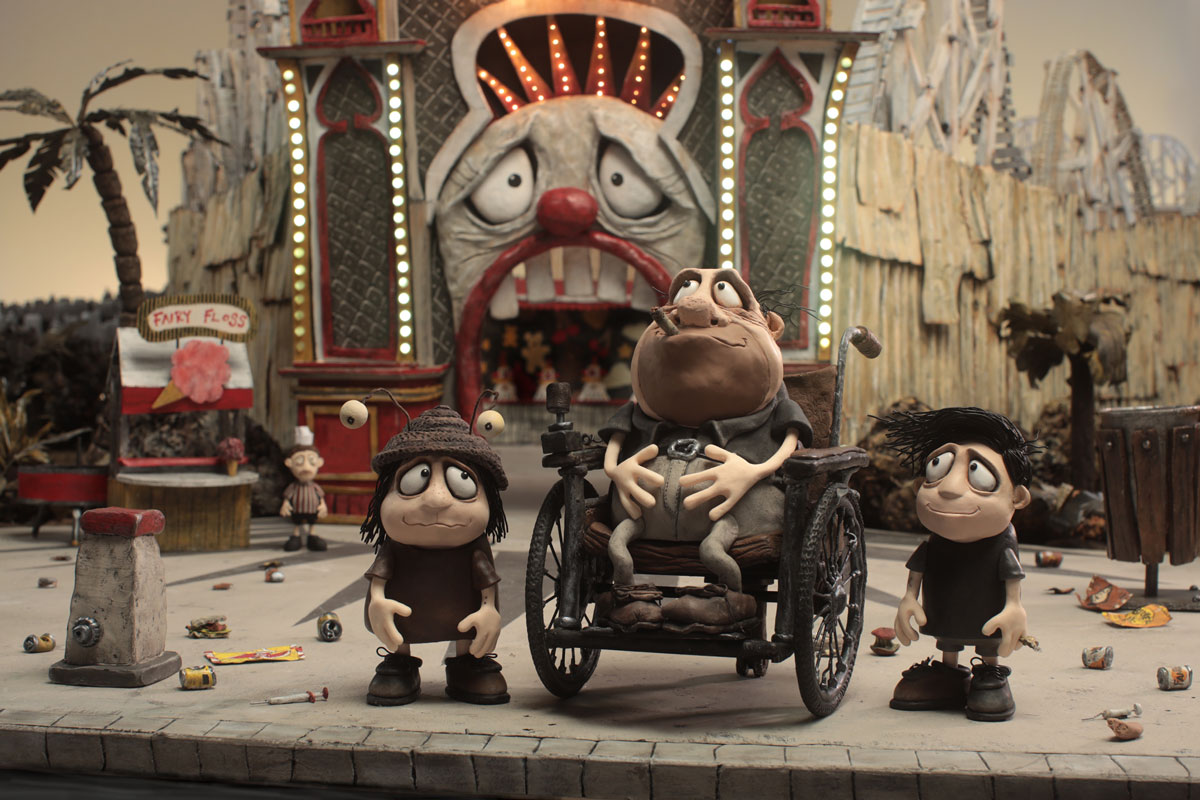
Grace Pudel (the voice of Succession’s Sarah Snook) is wishing goodbye to her elderly friend Pinky (Jacki Weaver), who’s currently prone on her deathbed. Once she finally perishes, Grace––who’s somewhere in her 20s, yet wears a black beanie customized with the pop-out eyelids of a snail––parks herself on a nearby bench and begins narrating her life story (in a manner that’s a tad Forrest Gump-ian) to her own pet snail Sylvie, who slowly slithers away as she’s setting herself free. Such events being in early Aardman-style claymation certainly enhances their kookiness. But regarding this animated medium, Memoir of a Snail’s director Adam Elliot (following-up his enduringly popular 2009 feature Mary and Max) prefers the term “clayography”––his own portmanteau of claymation and biography––which does someway capture the uniqueness of what he’s doing. – David K. (full review)
Black Box Diaries (Shiori Ito; Oct. 25)

In the middle of Black Box Diaries, journalist Shiori Ito’s debut documentary, Ito grins at the camera as she strolls through downtown Tokyo on the day of her book launch. It’s October 18, 2017. The New York Times broke the Harvey Weinstein news two weeks ago. Alyssa Milano popularized the hashtag #MeToo two days ago. Ito, fresh-faced and 28, happily recounts these events to the camera. The world may finally be ready to listen to her. – Lena W. (full review)
La Cocina (Alonso Ruizpalacios; Oct. 25)
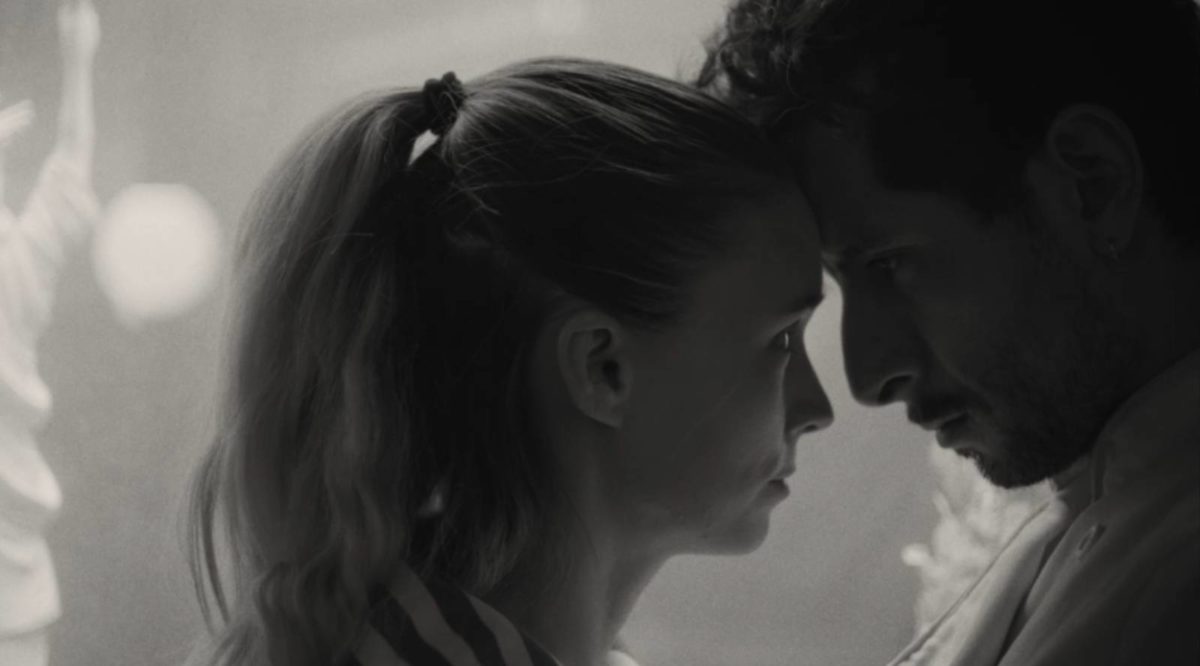
Egos are charred and tempers seared in La Cocina, a kitchen nightmare set in the engine rooms of a vast Times Square eatery where the staff have more pressing things to worry about than rising temperatures. Take Pedro (Raúl Briones Carmona, in his third Alonso Ruizpalacios joint), a hardened and still-undocumented line cook whose outbursts of ideology can only mask his resentments and vulnerability for so long. Then there’s Julia (Rooney Mara), who is carrying Pedro’s unborn child, hiding her morning sickness in the staff room and planning to sneak out on break to get an abortion. And then there’s Estela (Anna Diaz), our eyes and ears: fresh off the proverbial boat, with barely a word of English, asking strangers on the subway how to get to 45th street before being unceremoniously tossed into a lunch shift that soon resembles The Raft of the Medusa, adrift on a sea of Cherry Coke. – Rory O. (full review)
A Real Pain (Jesse Eisenberg; Nov. 1)

There’s something humble about Jesse Eisenberg writing, directing, and co-starring in a film, only to give its plum role to Kieran Culkin. Eisenberg, still, writes himself arguably the best scene in this picture; maybe the jury’s still out on the humble thing. David (Eisenberg) and Benji (Culkin) meet at the airport ahead of a trip to Poland. Their grandmother has recently passed and set some money aside for the two young men to take a tour of the motherland––captured, courtesy DP Michal Dymek, in visually and emotionally arresting images. – Dan M. (full review)
Here (Robert Zemeckis; Nov. 1)
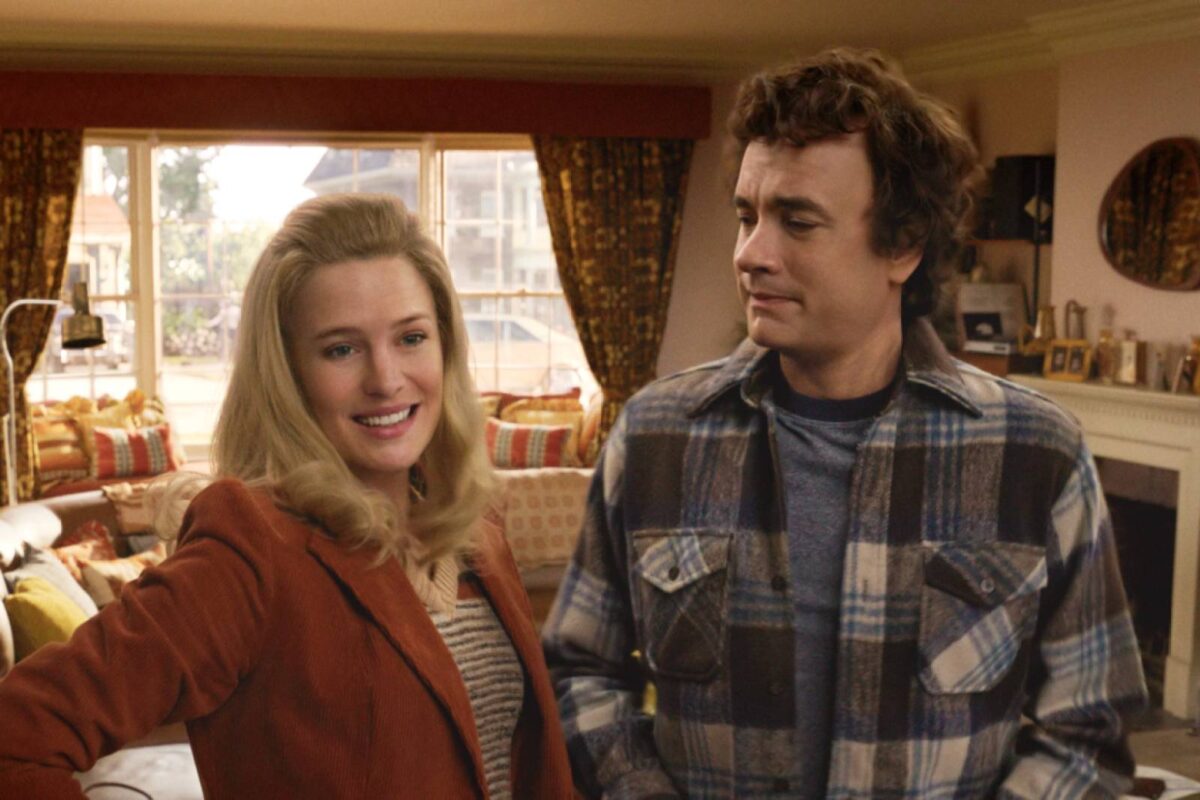
Even as a diehard defender of most non-Pinocchio movies from Robert Zemeckis in this recent stretch, he has quite a lot to live up when it comes to an adaptation of Richard McGuire’s brilliant comic Here. Spanning a single space from 500,957,406,073 BCE to 22,175 CE and shot from a single POV, call it his Tree of Life, Wavelength, or Tsai Ming-liang film, but it’s fascinating to see a director take this approach on a wide studio release. Here’s hoping the Forrest Gump reunion between Zemeckis, Tom Hanks, Robin Wright, and writer Eric Roth honors the visual majesty of its source material and doesn’t become too overburdened by dialogue. – Jordan R.
Soundtrack to a Coup d’Etat (Johan Grimonprez; Nov. 1)
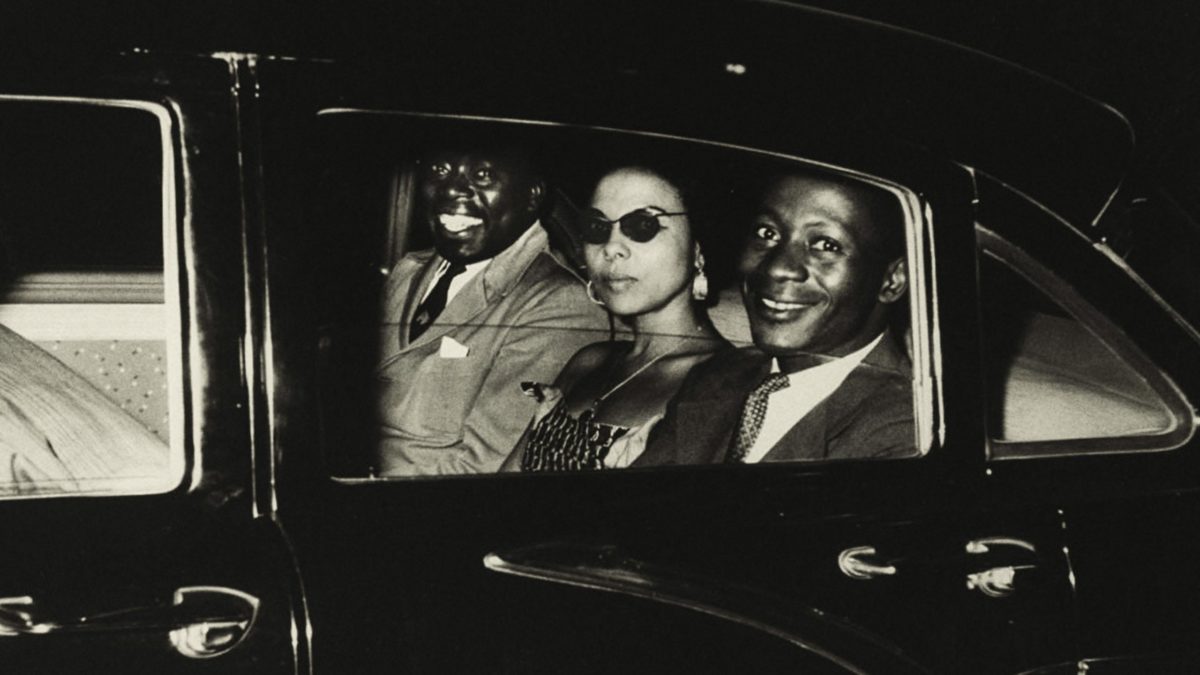
It was Mark Twain who said, “History doesn’t repeat itself but it often rhymes,” which is one way of approaching Belgian filmmaker and multimedia artist Johan Grimonprez’s sprawling, jazz-infused Soundtrack to a Coup d’État. The political essay revisits 1960, a turbulent year in global affairs: Patrice Lumumba rises to power in Congo just as the United States, through the CIA-backed Voice of America radio network, aims to soften America’s image aboard, sending jazz musicians Louis Armstrong, Duke Ellington, Nina Simone, Dizzy Gillespie, Abbey Lincoln, and Max Roach to tour the world. The film positions the jazz musicians as a kind of political cabinet while Gillespie envisions his own run for the White House on TV talk shows back home. It proceeds with a rather kinetic, defiant tone in which the jazz, breaking news, citations, and quotes interrupt the historical footage a more standard documentary may have primarily focused on. – John F. (full review)
Blitz (Steve McQueen; Nov. 1 in theaters and Nov. 22 on Apple TV+)
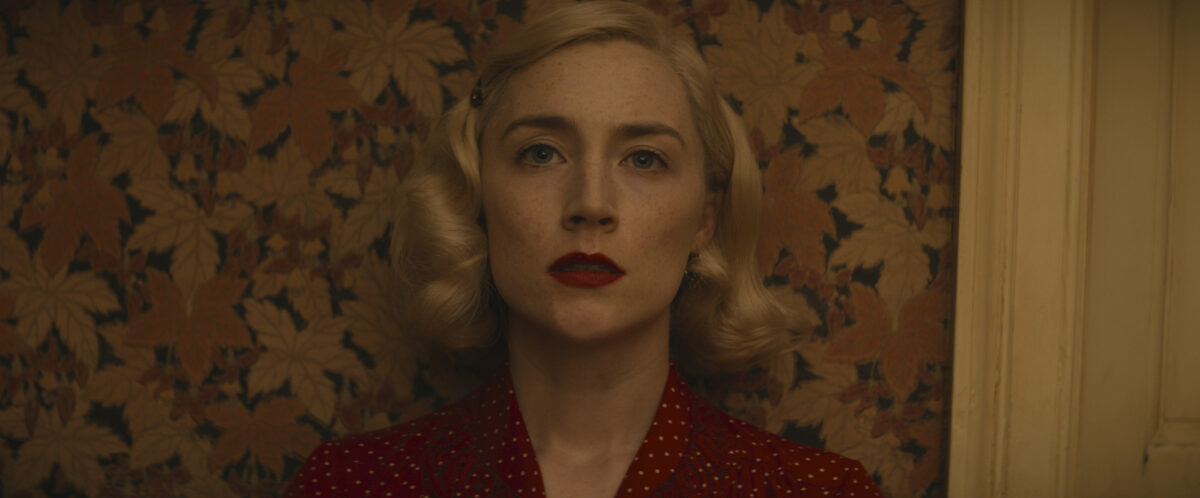
Following up last year’s epic documentary Occupied City, Steve McQueen has returned to the WWII era with a narrative feature. Blitz, starring Saoirse Ronan and Elliott Heffernan in a tale of a mother and son separated during the war. Perhaps most intriguing that it’ll mark the first time cinematographer Yorick Le Saux, collaborator of Olivier Assayas and Claire Denis, works with McQueen, who’s also backed by a Hans Zimmer score. Set for a world premiere as the Opening Night Gala of the 68th BFI London Film Festival on October 9, then a day later as the Closing Night of New York Film Festival, it’ll then roll out the next month from Apple. – Jordan R.
Bird (Andrea Arnold; Nov. 8)
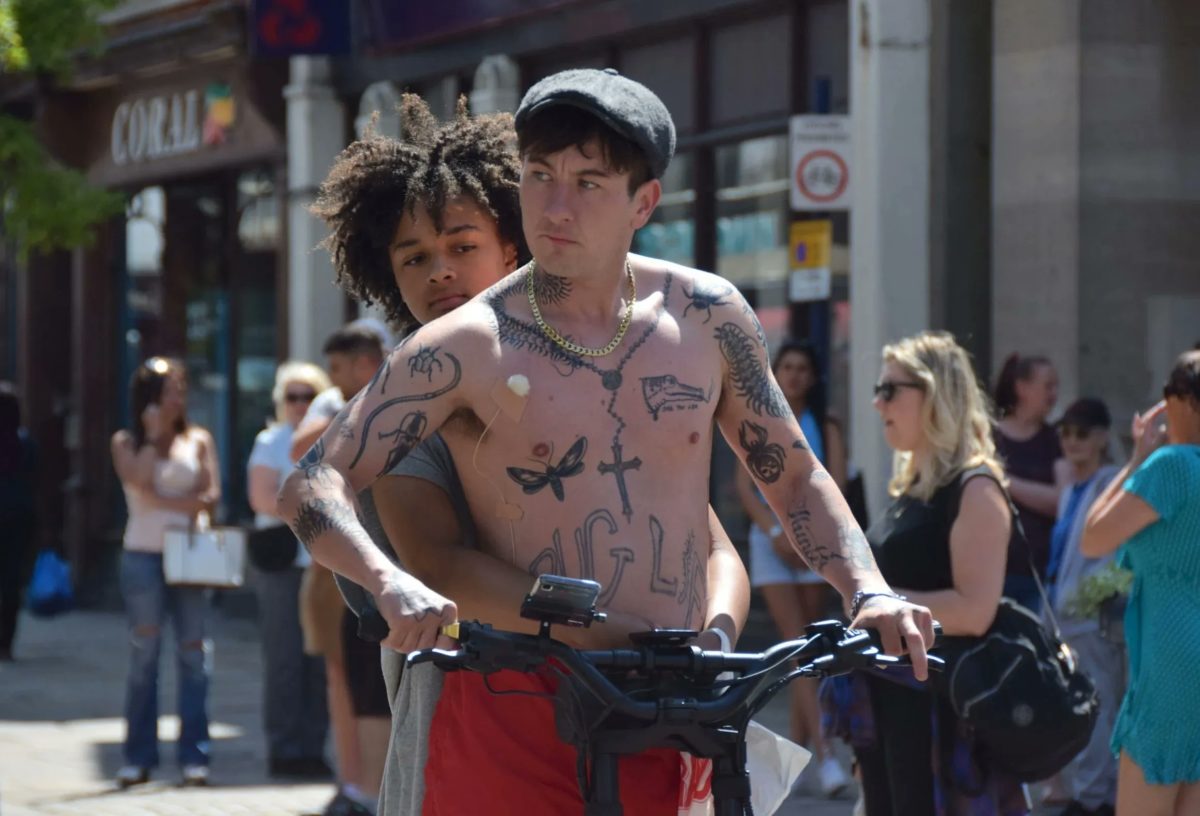
Shot by Robbie Ryan and featuring the first Irish character Keoghan has played in a while––as well as a soundtrack peppered with the Dublin-based music of Fontaines D.C. and Gemma Dunleavy, and with some passing references to what appears to be a local Irish traveler community––there is a vivid Hibernian energy to Bird that, on a personal level, made me doubly disappointed. Arnold has been magnificent with young actors in the past: there was a distinct feeling in American Honey (for my money, one of the best films of the last decade) that the director was conspiring with the film’s rag-tag gang of teenagers––if not their peer, then certainly an honorary ringleader. Nine years on, it’s hard to see a similar connection in Bird: Adams and Buda liven up dialogue with their own slang and colloquialisms, but certain deliveries land conspicuously flat––that touch of Arnold magic only notable for its absence. – Rory O. (full review)
Christmas Eve at Miller’s Point (Tyler Taormina; Nov. 8)
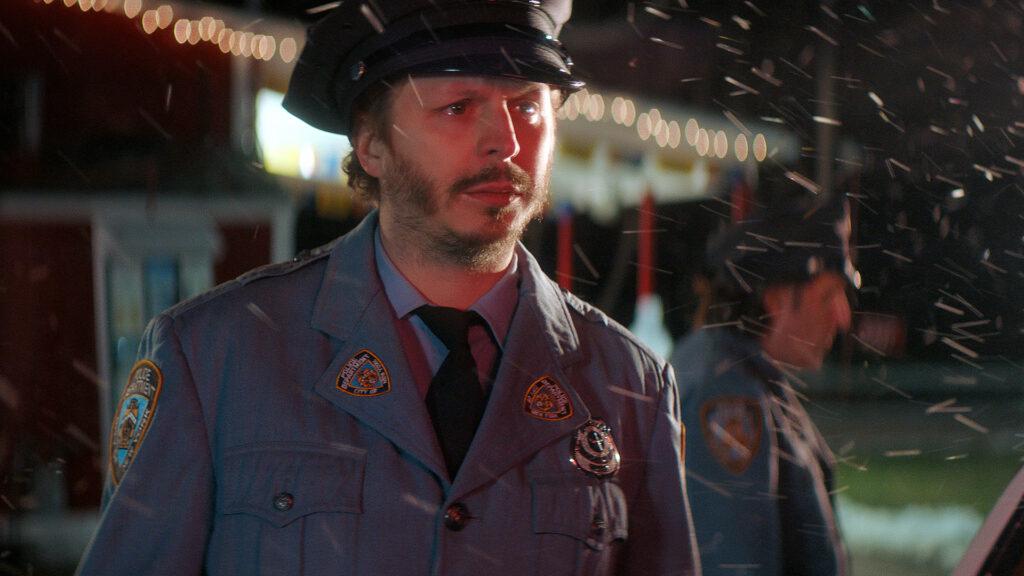
Writing on Martin Scorsese’s Shutter Island in 2010, Anthony Lane whipped a quote from Umberto Eco: “Two cliches make us laugh but a hundred clichés move us, because we sense dimly that the clichés are talking among themselves, celebrating a reunion.” Eco’s words resonate even stronger in Christmas Eve at Miller’s Point, a fascinating simulacrum of festive movies in which references to annual favorites are thrust together with about as much delicacy as the family it tenderly depicts. The island isn’t Shutter but Long, specifically a small town in Suffolk County where we meet four generations of the Bolsanos, a blue-collar family going through the motions and rituals of their annual get-together, adoring and enduring each other as best they can in what might be their last year in the family home. The filmmaker behind this delicate, strange, reflective bauble is Tyler Taormina, co-founder of the Omnes film collective with Carson Lund, the cinematographer on each of his films to date; and over those three projects (Miller’s was preceded by Happer’s Comet and Ham on Rye) there is already the suggestion of a distinct, novel style: imagine a slightly jagged New Sincerity lensed by Russell Metty and you’re somewhere in the area. – Rory O. (full review)
All We Imagine as Light (Payal Kapadia; Nov. 15)

“Everyone has at least one person in Mumbai.” “There’s work and money in Mumbai. Who would want to go back?” “You better get used to the impermanence.” Like poetry, the hushed voices of real Indian migrant workers pour gently over footage of a busy market glowing in the night in India’s largest metropolis, the spirit of the film’s two tender leads––Prabha and Anu, nurses in the city––evoked by documentary-style voiceover. Writer-director Payal Kapadia isn’t interested in the flashy world of Mumbai that gets so much global attention. Per its opening soundscape, All We Imagine as Light means to bask in the luminescence of life found among India’s lower classes, which means acknowledging the inequality and socio-economic injustice that defines their everyday as much as it means showcasing their intrinsic glow and dogged refusal to let the inalienable love, beauty, and camaraderie of existence be taken from them. – Luke H. (full review)
A Traveler’s Needs (Hong Sangsoo; Nov. 22)
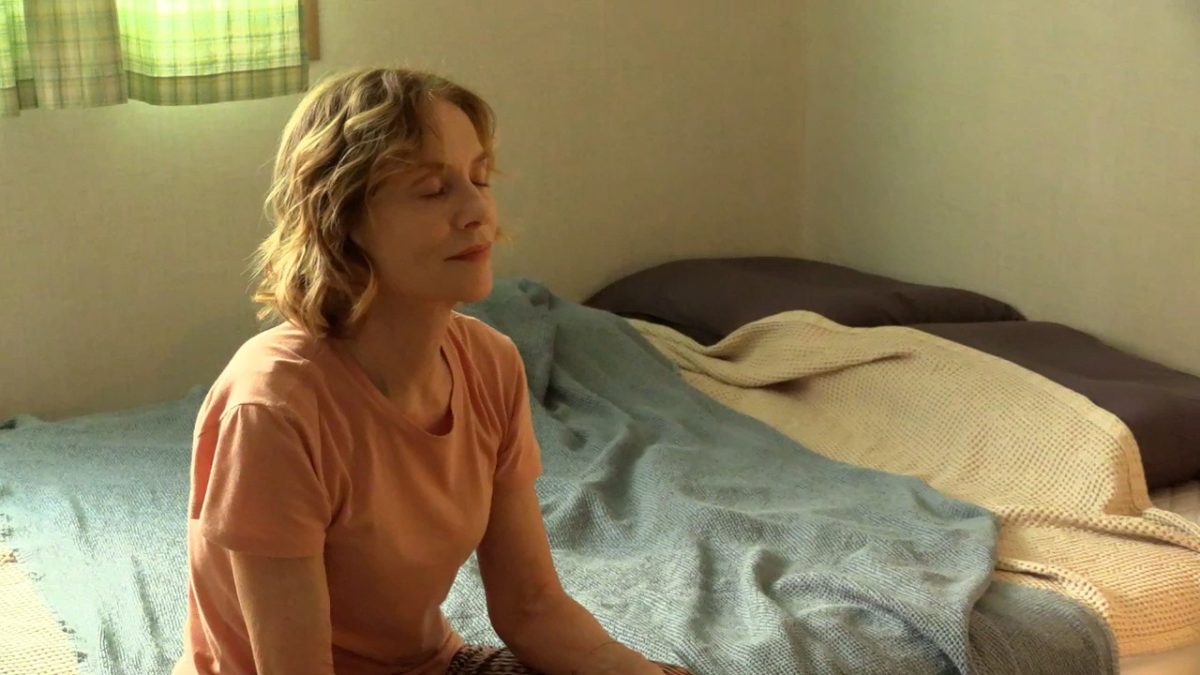
Two things can be true at once. The old debate over whether Hong Sangsoo’s cinema is overly earnest or self-aware was always a bit reductive––when the most light-hearted of the director’s films transcend, it is usually a result of both. Regardless, those arguments fade further into the rearview mirror with A Traveler’s Needs, his first collaboration with Isabelle Huppert since Claire’s Camera (2017) and Hong’s funniest film in years. In one gloriously stilted scene at around the halfway point, a lawyer played by Hong regular Kwon Hae-hyo attempts to flirt with Huppert’s character, Iris, who responds with a kind of unhinged wink-and-giggle movement––she then, insanely, repeats the trick. Wise to the cringing discomfort of the moment, Hong quickly cuts to a zoom reminiscent of the fan-favorite in The Woman Who Ran. Don’t say he isn’t in on the joke. – Rory O. (full review)
Gladiator II (Ridley Scott; Nov. 22)

After returning to his Alien and Blade Runner franchise in various capacities, Ridley Scott continues the story of his Best Picture winner Gladiator nearly a quarter-century later. Following up last year’s period epic (Napoleon) with another, Gladiator II brings together the epic cast of Paul Mescal, Pedro Pascal, Denzel Washington, Joseph Quinn, Fred Hechinger, Lior Raz, Derek Jacobi, and Connie Nielsen. With the fall slate lacking big-budget studio fare that doesn’t look downright dire, here’s hoping the Ridler will save us. – Jordan R.
Flow (Gints Zilbalodis; Nov. 22)
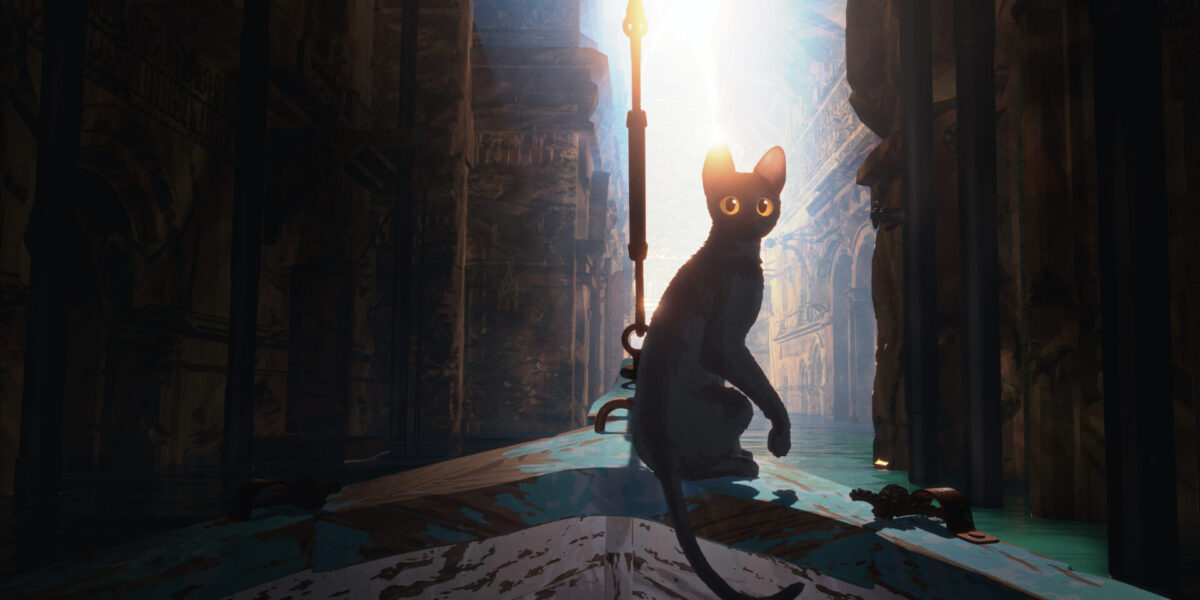
An under-the-radar Cannes breakout was Gints Zilbalodis’ dialogue-free animation Flow, following a cat’s journey as he escapes a flood. Recently unveiled as Latvia’s entry for Best International Feature Film at the next Academy Awards, it was picked up by Janus Films and Sideshow, who will hopefully give it a robust release in a season fairly lacking for promising kid’s entertainment. – Jordan R.
Hard Truths (Mike Leigh; December 6, Jan. 10 expansion)
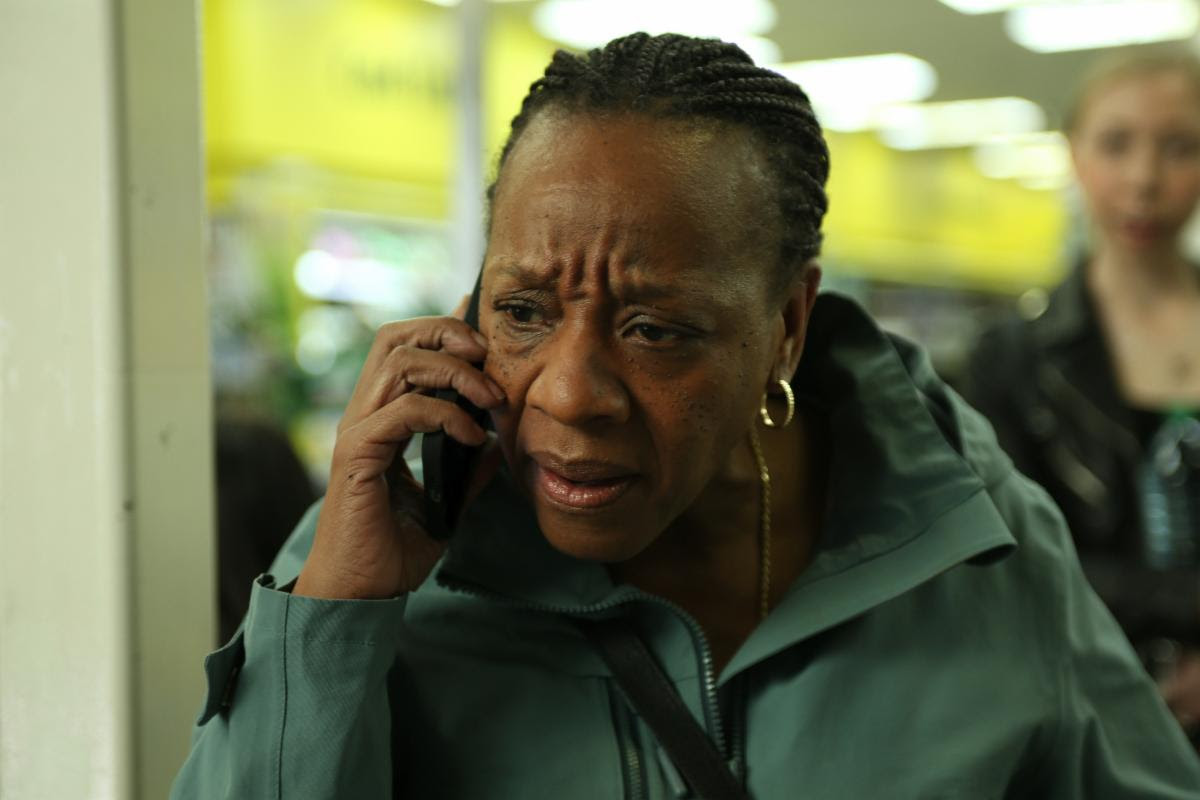
After 2018’s Peterloo, Mike Leigh has openly expressed how difficult it was to finance his next feature. Thankfully he amassed the resources and quietly began production last year on his 23rd film. Led by Marianne Jean-Baptiste, who worked with Leigh on 1996’s Secrets & Lies and received an Oscar nomination for her performance, Hard Truths marks his return to contemporary-set films. Having recently caught up on all of his past features, I couldn’t be more excited to see the master return. – Jordan R.
Nightbitch (Marielle Heller; Dec. 6)
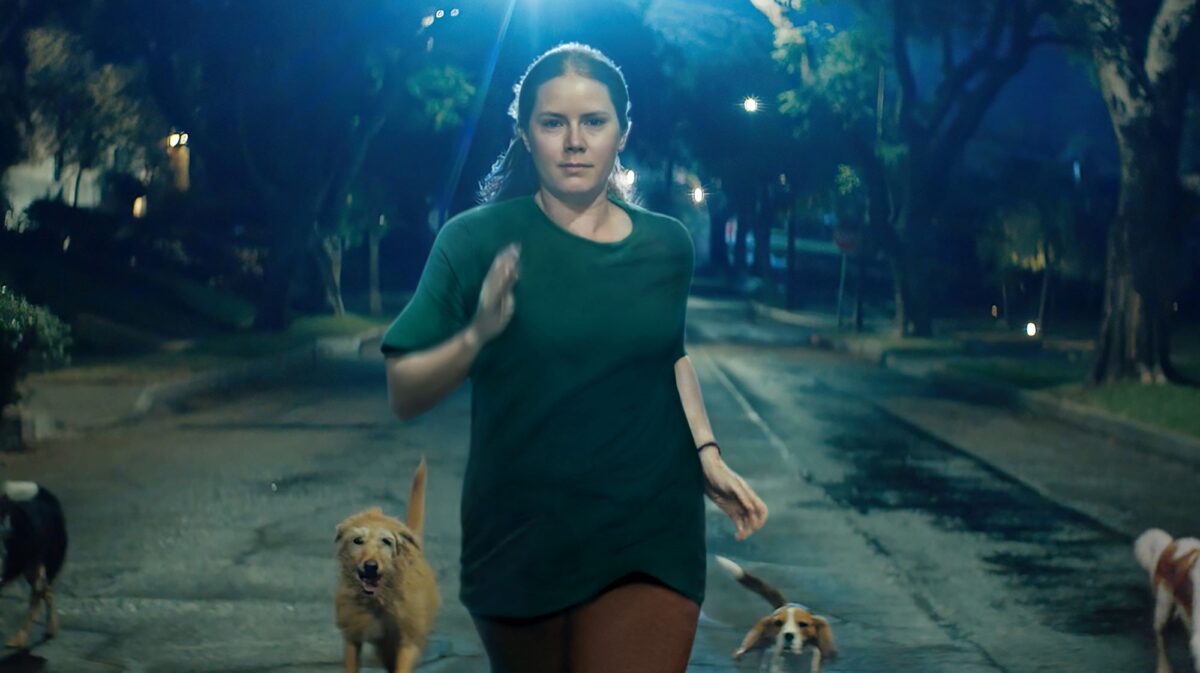
Writer-director-actor Marielle Heller hasn’t made a bad film yet, and will look to continue that streak with her newest feature, Nightbitch, adapted from the 2021 novel of the same name. Following a stay-at-home mom (Amy Adams) who sometimes transforms into a dog once the lights go out, Heller’s fourth film might give her the opportunity to veer out of reality. After two features (Can You Ever Forgive Me? and A Beautiful Day in the Neighborhood) based on real-life figures, Heller seems primed to play with form, genre, and a larger landscape. Throw in Adams, Scoot McNairy, and Mary Holland––Nightbitch could be the offbeat indie of the year. – Mike F.
The Return (Uberto Pasolini; Dec. 6)
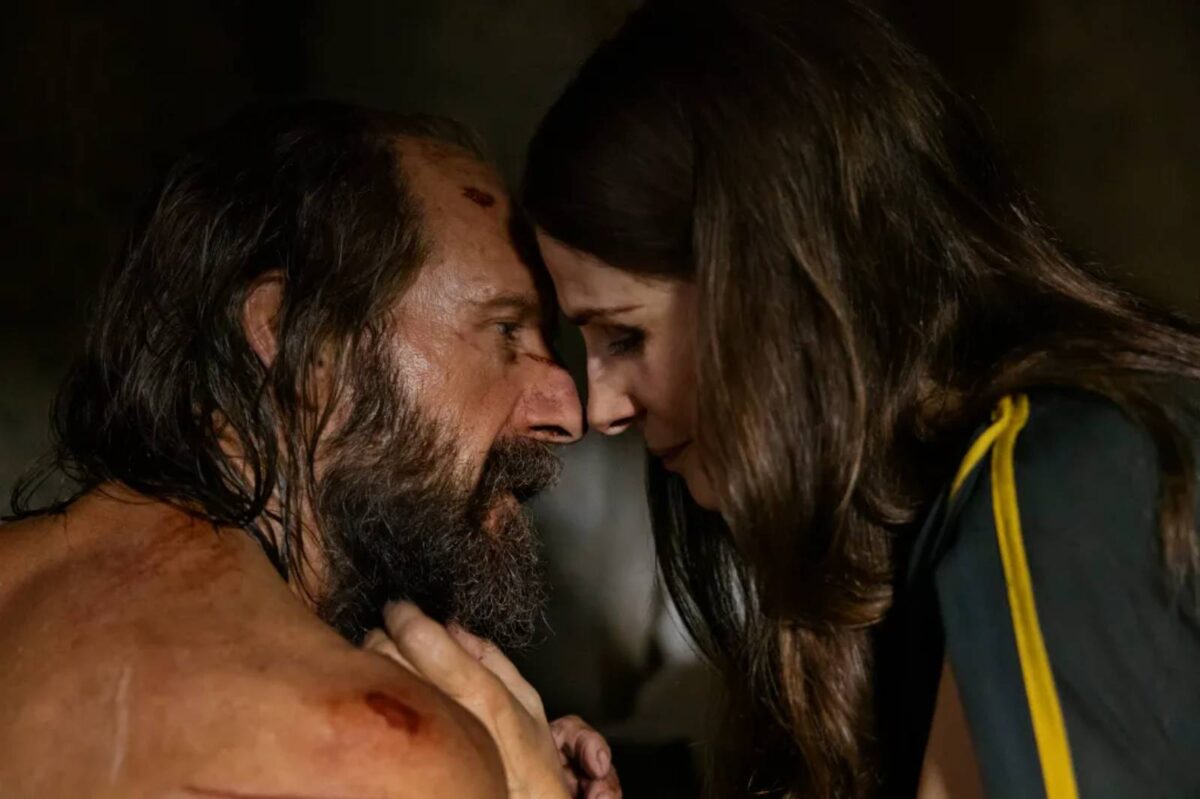
With his acclaimed drama Nowhere Special finally getting a U.S. release this past summer, four years after its premiere, Uberto Pasolini is now back with his next feature. The Return, which reunites the powerhouse duo of Ralph Fiennes and Juliette Binoche, is an adaptation of Homer’s Odyssey. Set for a TIFF world premiere, we look forward to seeing how Pasolini updates the Greek epic with two incredible actors. – Jordan R.
Oh, Canada (Paul Schrader; Dec. 6)
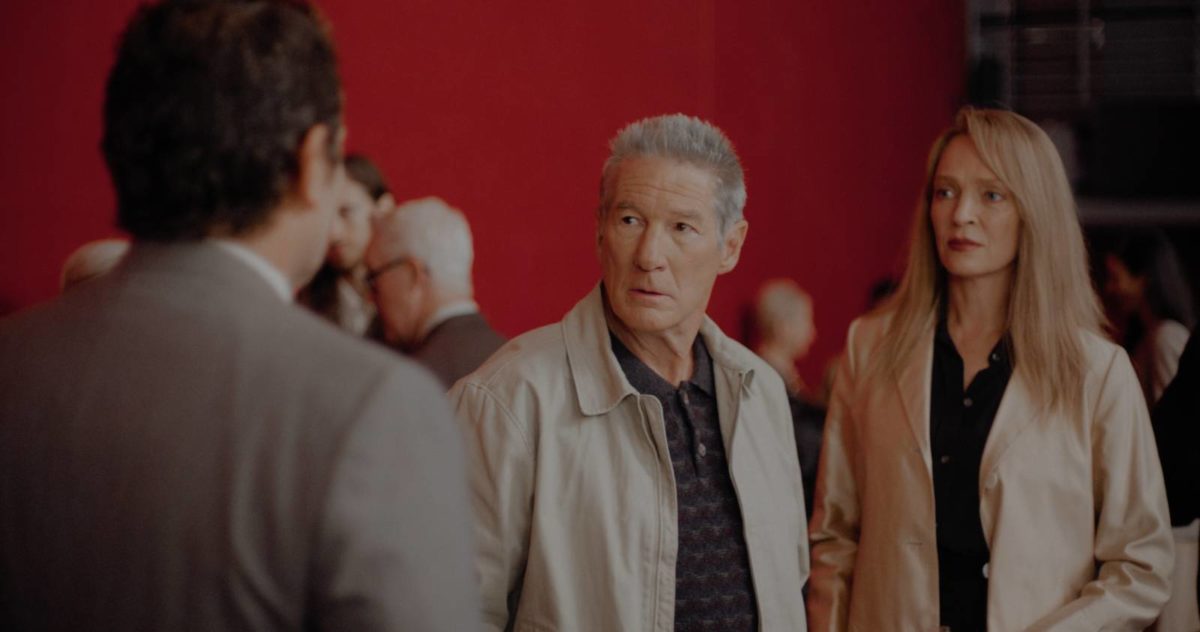
The cinema of Paul Schrader has always felt like a confessional, all those dark rooms and troubled men, the registered Swiftie’s own tortured poets department. The confessional edges closer to the form in his latest film Oh, Canada, an august adaptation of Russell Banks’ 2021 novel Foregone that tells of a famous documentary filmmaker at the end of his days, divulging secrets of his past to an interviewer’s head-on camera. Might the old Calvinist be looking for a little more absolution? When Banks, a friend since the director’s adaptation of Affliction, died in 2023, Schrader was coming to the tail end of his own series of health scares––these included everything from hospitalizations for long COVID to the retina detaching from his right eye during the filming of Master Gardener. “If I’m going to make a film about death,” he recently admitted thinking to himself at the time, “I’d better hurry up.” – Rory O. (full review)
On Becoming a Guinea Fowl (Rungano Nyoni; Dec. 13)

After breaking out with her debut I Am Not a Witch, Zambian-Welsh director Rungano Nyoni upped her scope with the A24-backed On Becoming a Guinea Fowl, which premiered to great acclaim at Cannes earlier this year and is now rolling out this fall. The film, shot by David Gallego (I Am Not a Witch, Embrace of the Serpent, Rebel Ridge), follows a woman who comes across the body of her uncle in the middle of the night and buried secrets arise as funeral proceedings begin. – Jordan R.
The Room Next Door (Pedro Almodóvar; Dec. 20)
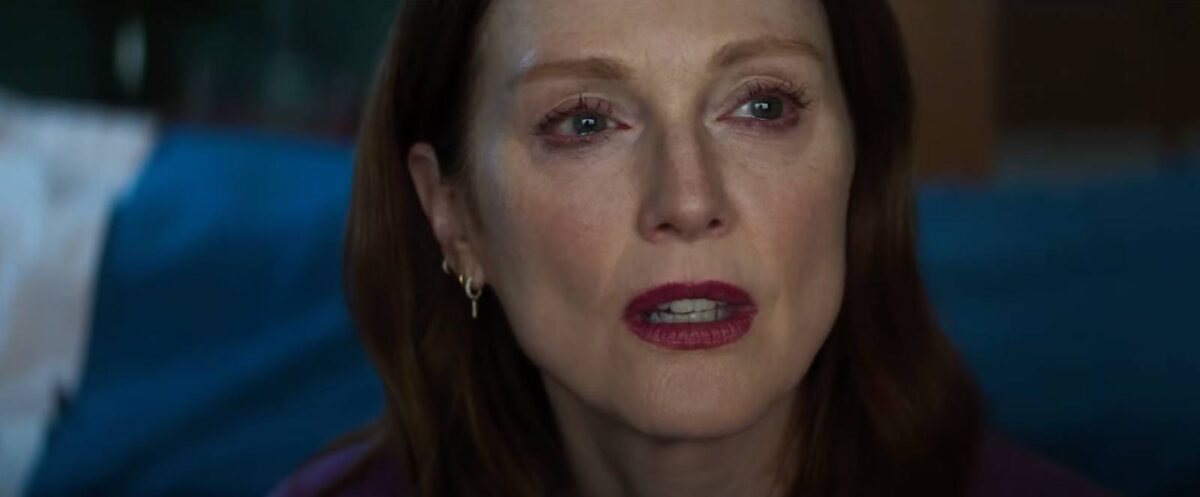
Following up a pair of shorts, Pedro Almodóvar has quickly finished his English-language feature debut, The Room Next Door, after wrapping production just a few months ago. Starring Julianne Moore, Tilda Swinton, John Turturro, and Alessandro Nivola, the adaptation of Sigrid Nunez’s rich, witty, heart-aching novel What Are You Going Through features cinematography by Eduard Grau (A Single Man). Set to come to Venice, TIFF, and NYFF, it’ll then arrive this holiday season. – Jordan R.
Babygirl (Halina Reijn; Dec. 25)

It feels like we’ve been anticipating the return of the Hollywood erotic thriller for years now––instead, all we’ve got is endless social-media discourse about the few sex scenes still intact in movies. Halina Reijn’s Bodies Bodies Bodies follow-up is 2024’s best hope to finally usher in a new age for the delightfully schlocky genre, with Nicole Kidman and Harrison Dickinson as the boss and employee whose affair threatens the company they work for. It’s a loaded premise, but has potential to marry genre thrills with a thoughtful probe of workplace sexism to more powerful effect than last year’s almost-great Fair Play. – Alistair R.
Nosferatu (Robert Eggers; Dec. 25)
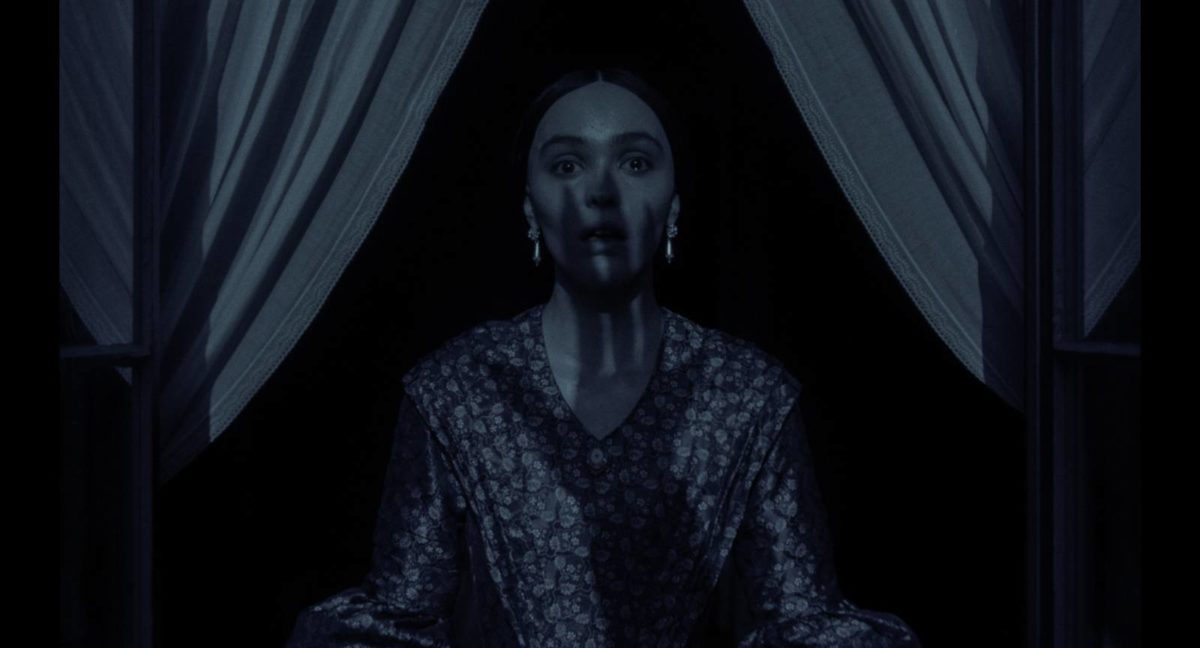
The best Christmas present of the year, after his biggest project yet with The Northman, Robert Eggers jumped quickly into his long-developing passion project: a new take on F. W. Murnau’s 1922 German Expressionist masterpiece Nosferatu, itself inspired by Bram Stoker’s Dracula. With a cast featuring Lily-Rose Depp, Bill Skarsgård, Nicholas Hoult, Aaron Taylor-Johnson, Emma Corrin, Willem Dafoe, Simon McBurney, and Ralph Ineson, the first trailer hints at the rare remake that looks to be saying and showing something new. – Jordan R.
A Complete Unknown (James Mangold; Dec. 25)
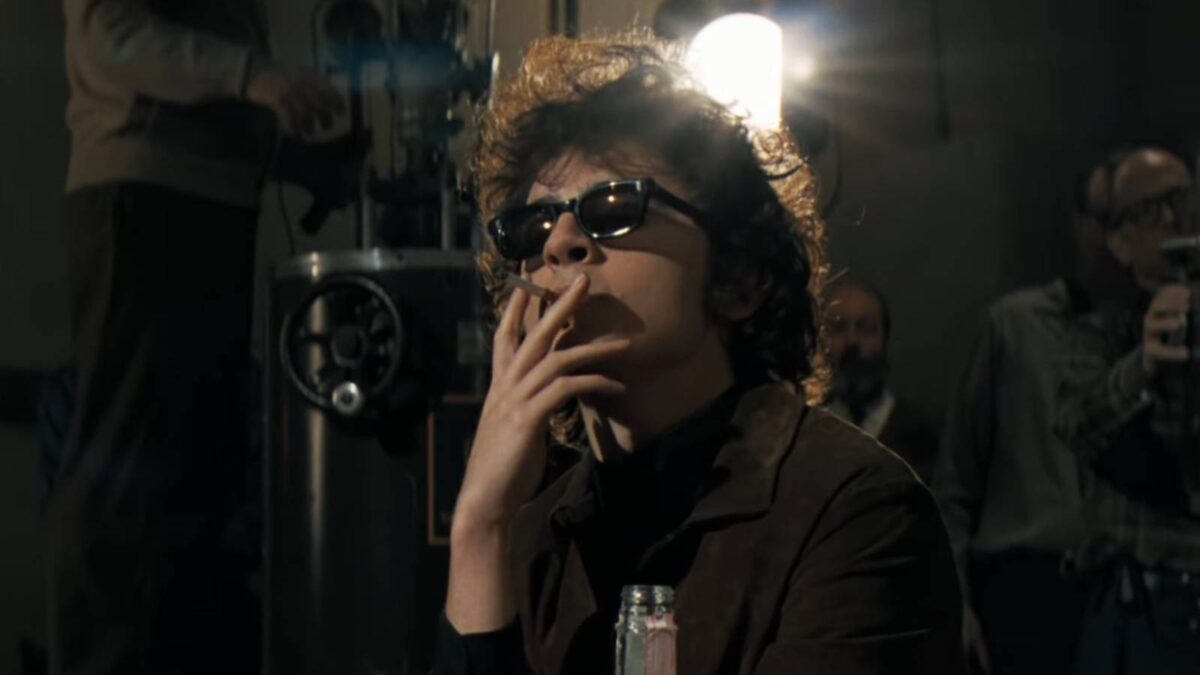
After taking on Indiana Jones, James Mangold is jumping to an even more ubiquitous figure: Bob Dylan. Featuring Timothée Chalamet as the man himself, A Complete Unknown also stars Edward Norton, Elle Fanning, Monica Barbaro, Boyd Holbrook, Dan Fogler, Norbert Leo Butz, and Scoot McNairy. As a late addition to 2024’s calendar, Searchlight Pictures has just set it for wide release in December. – Jordan R.
You Burn Me (Matías Piñeiro; Fall TBD)
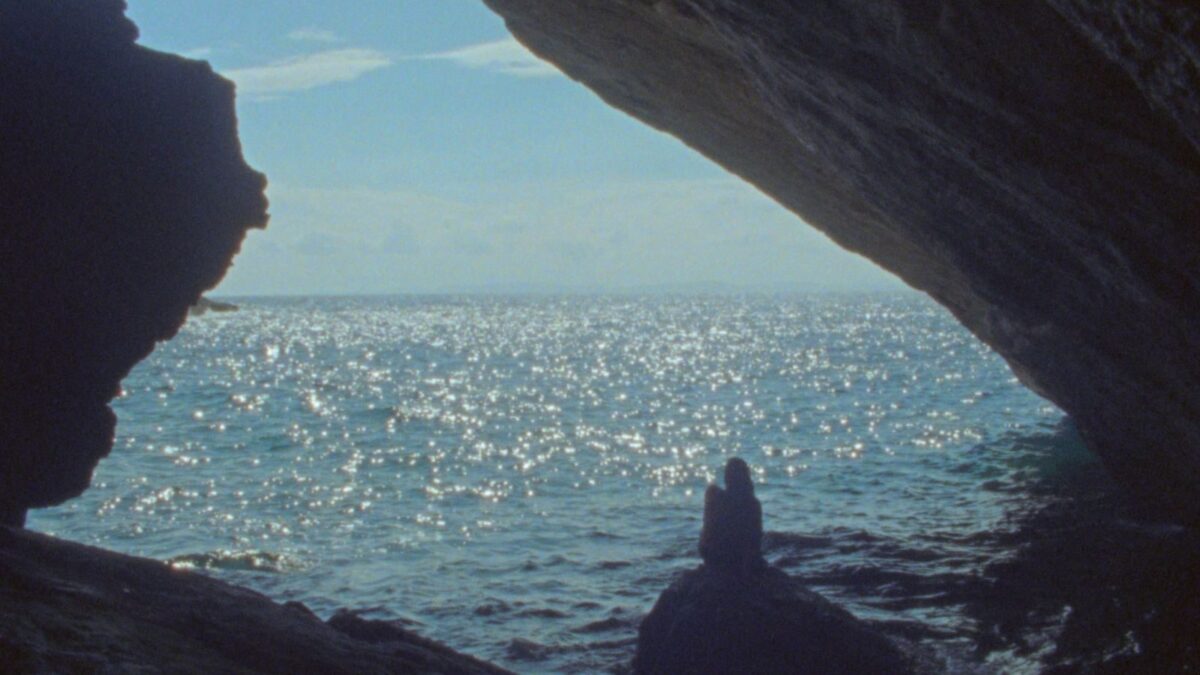
With his latest feature, Matías Piñeiro playfully, gorgeously adapts “Sea Foam,” a chapter in Cesare Pavese’s Dialogues with Leucò. Centered around fictional dialogue between the ancient Greek poet Sappho and the nymph Britomartis, played by Gabi Saidón and María Villar, respectively, Piñeiro’s latest is a feat of effervescent poetic beauty, melding poignant words with stunning images to a a dizzying, transcendent effect. – Jordan R.
Honorable Mentions
- The Front Room (Sept. 6)
- The Paragon (Sept. 6)
- The Mother of All Lies (Sept. 6)
- Meanwhile on Earth (Sept. 13)
- Booger (Sept. 13)
- Will and Harper (Sept. 13 theaters and Sept. 27 on Netflix)
- Wolfs (Sept. 20 in theaters and Sept. 27 on Apple TV+)
- Never Let Go (Sept. 20)
- The Featherweight (Sept. 20)
- Super-Man: The Christopher Reeve Story (Sept. 21 & 25)
- Lee (Sept. 27)
- The Wild Robot (Sept. 27)
- Notice to Quit (Sept. 27)
- Sleep (Sept. 27)
- Food and Country (Oct. 2)
- Daaaaaalí! (Oct. 4)
- Daytime Revolution (Oct. 9)
- We Live in Time (Oct. 11)
- Saturday Night (Oct. 11)
- Nocturnes (Oct. 18)
- Flight Risk (Oct. 18)
- Exhibiting Forgiveness (Oct. 18)
- Bookworm (Oct. 18)
- Woman of the Hour (Oct. 18 on Netflix)
- Your Monster (Oct. 25)
- The Remarkable Life of Ibelin (Oct. 25 on Netflix)
- Chasing Chasing Amy (Nov 1)
- Conclave (Nov. 1)
- Heretic (Nov. 15)
- Rita (Nov. 22)
- Y2K (Dec. 6)
- The Order (Dec. 6)
- Carry-On (Dec. 13 on Netflix)
- The Fire Inside (Dec. 25)
- Wallace & Gromit: Vengeance Most Fowl (Dec. 25 on Netflix)
- Bogart: Life Comes in Flashes (TBD)
- Ernest Cole: Lost and Found (Fall TBD)
- Santosh (Fall TBD)
